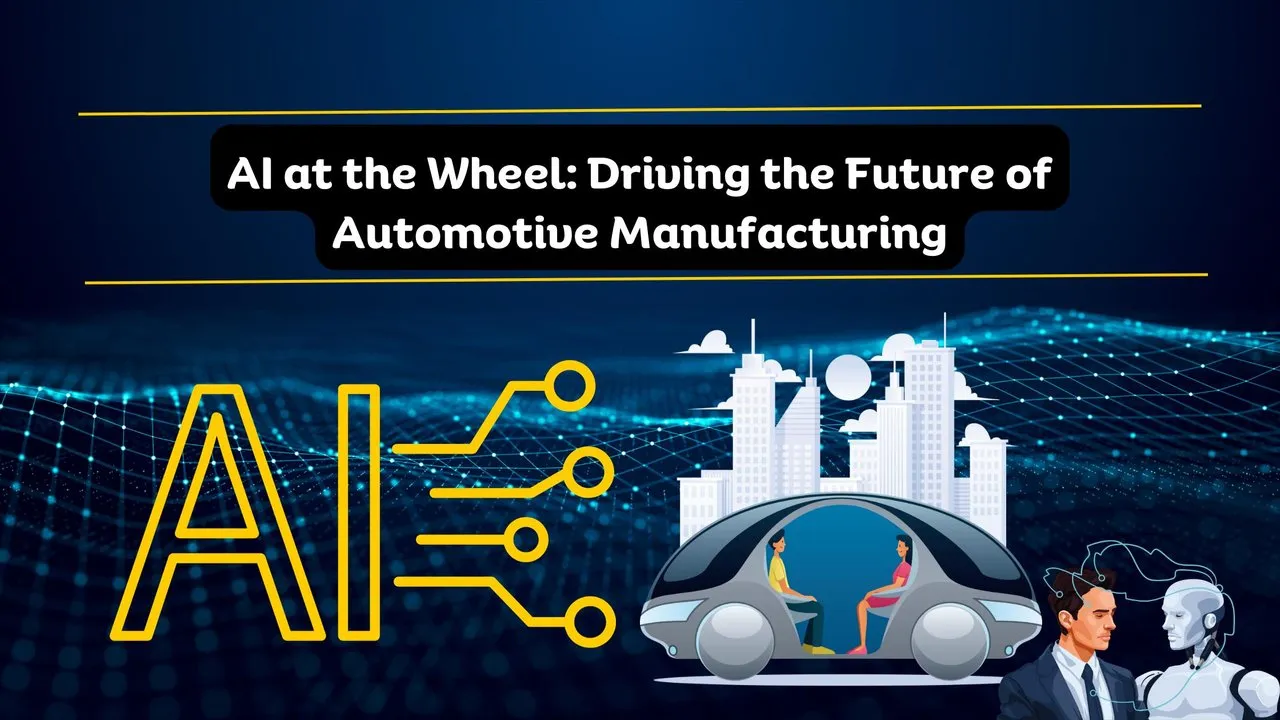
REFERENCES AT THE END OF THIS POST

Introduction
The integration of Artificial Intelligence (AI) into the automotive manufacturing industry is not just a futuristic concept; it's a current revolution, bringing unprecedented changes and opportunities. As we explore this dynamic landscape, we delve into how AI is reshaping car production, backed by compelling data and expert insights.
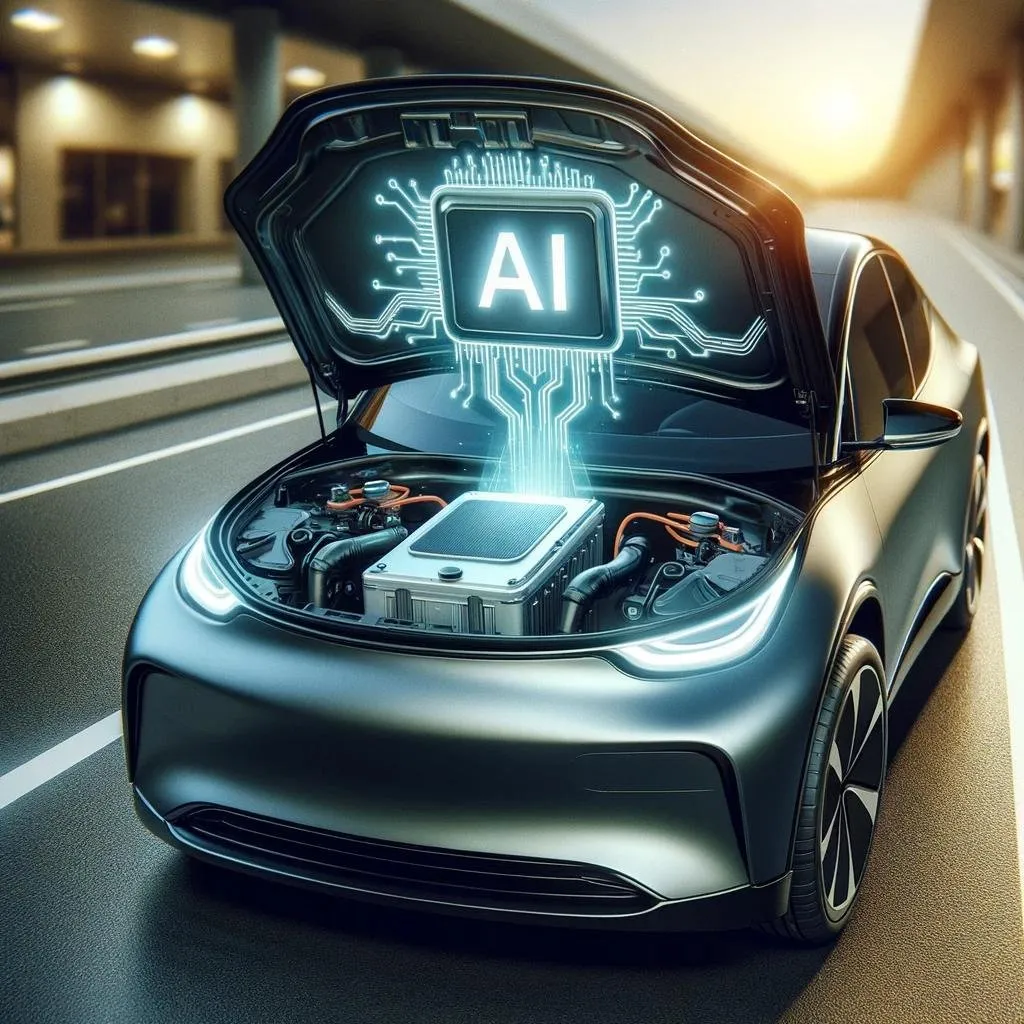

Transformative Influence of AI
AI's impact on automotive manufacturing is profound and multi-faceted:
Enhanced Design and Quality Control: AI's ability to analyze vast data sets aids in creating safer, more efficient vehicles. It's projected that by 2035, 75% of vehicles will be equipped with AI technology, revolutionizing design and quality assurance processes.
Optimized Supply Chain and Production: The automotive AI market, valued at USD 2.54 billion in 2021, is expected to grow at a CAGR of 21.6% from 2022 to 2030, significantly optimizing supply chain management and production efficiency.
Personalization and Sustainability: With a predicted market growth reaching $15.9 billion by 2027, AI is set to offer more personalized customer experiences and eco-friendly manufacturing solutions.
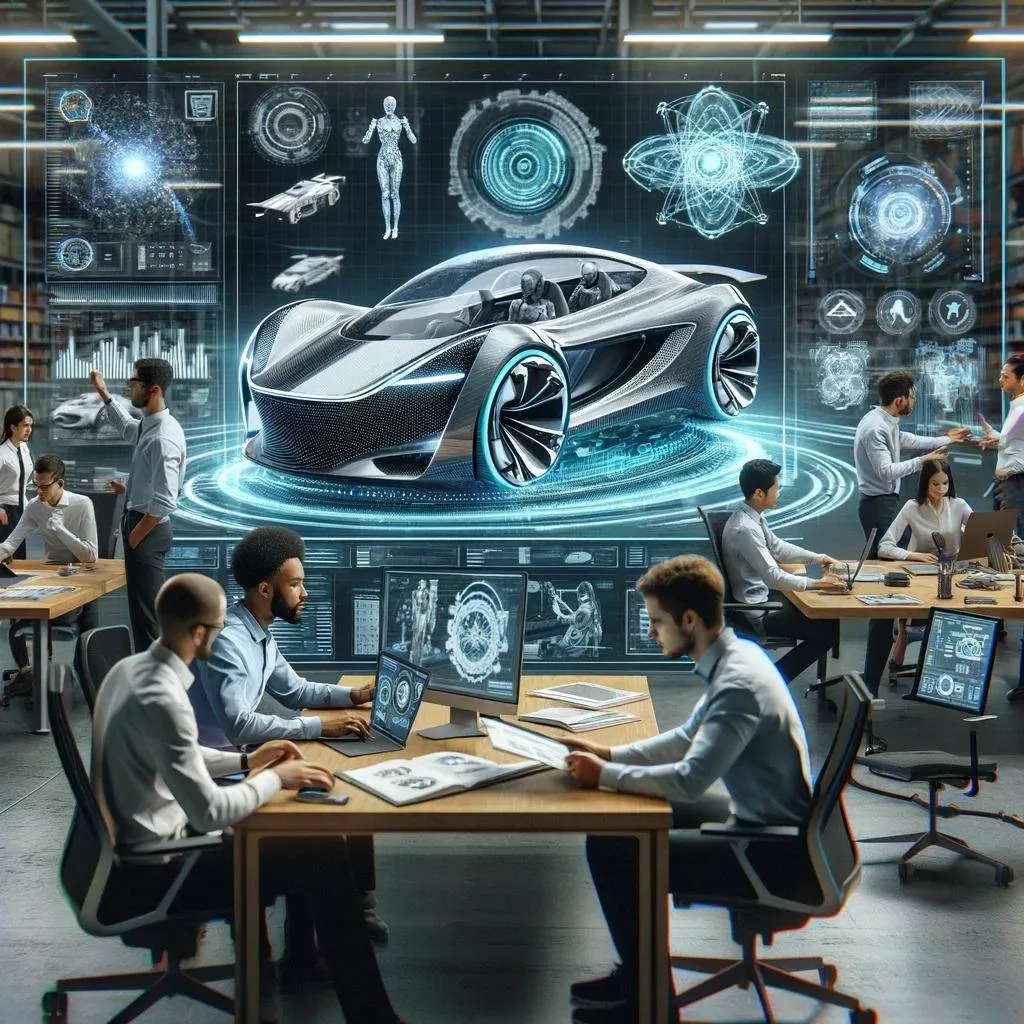

Real-World Applications: AI in Motion
Incorporating recent developments and expert views gives a vivid picture of AI in action:
Self-Driving Cars: "The adoption of AI-driven cars is expected to surge, with 10% of vehicles predicted to be driverless by 2030," notes an industry expert. This aligns with the global market forecast, expecting an increase from 20.3 million self-driving cars in 2021 to 62.4 million.
Predictive Maintenance and RPA: "AI is transforming the automotive industry, increasing productivity and creating new job opportunities," states a manufacturing CEO. Predictive maintenance, backed by AI, is enhancing vehicle longevity and safety.
VR in Design: Using VR and AI, designers are creating more efficient models, cutting down production costs and time.
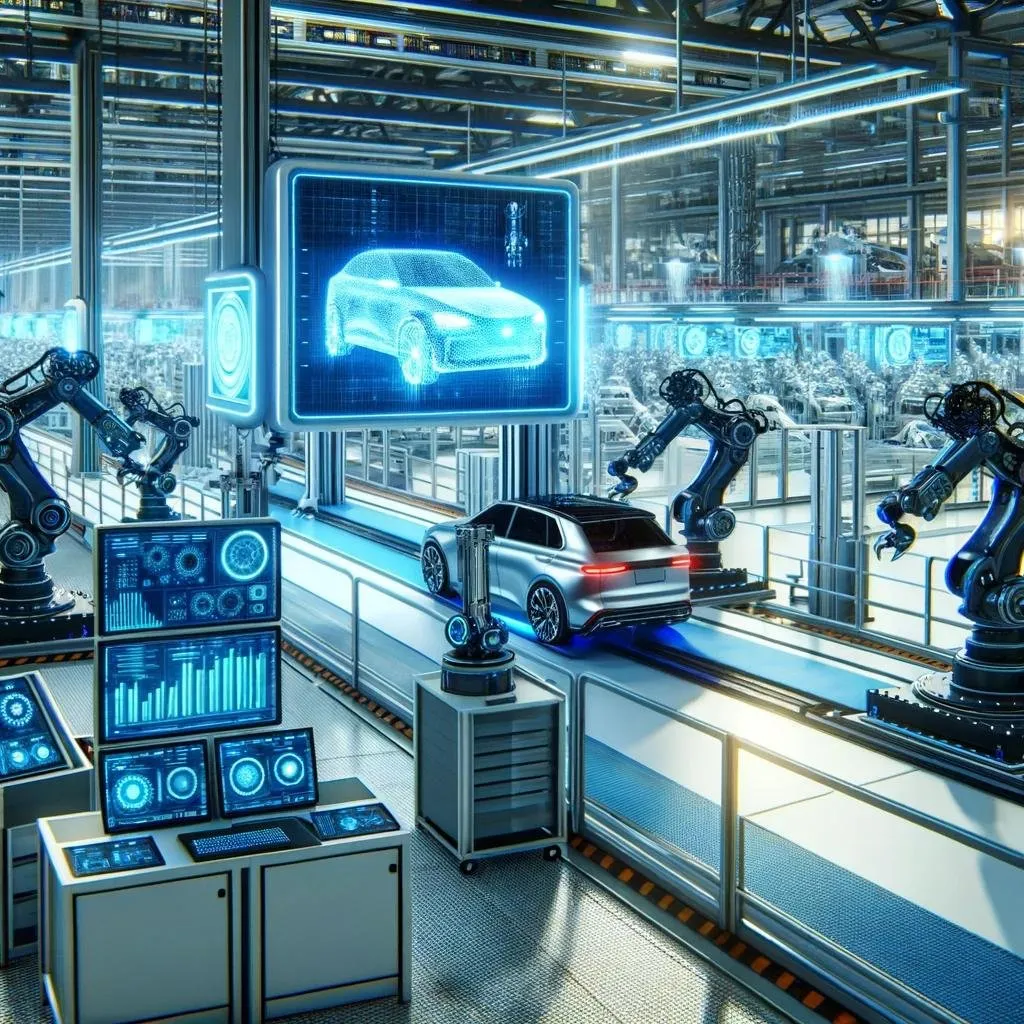

Addressing the Challenges
Despite AI's promise, concerns around cybersecurity, ethics, and employment persist. As AI continues to grow, with an expected market size of $407 billion by 2027, addressing these challenges becomes crucial for sustainable advancement.
The Road Ahead: Future Projections
Looking to the future, several trends emerge:
AI in Electric Vehicles (EVs): AI is vital in advancing EV technology, particularly in battery management, with a significant financial benefit of $3.8 trillion expected by 2035 for the manufacturing sector.
ADAS and Data-Driven Customization: AI-driven ADAS are projected to offer enhanced safety, while data-driven customization will cater to individual consumer preferences.
Collaborative Robots (Cobots): With the AI in manufacturing market projected to reach $7.2 billion by 2023, cobots will become more prevalent, augmenting human efforts.
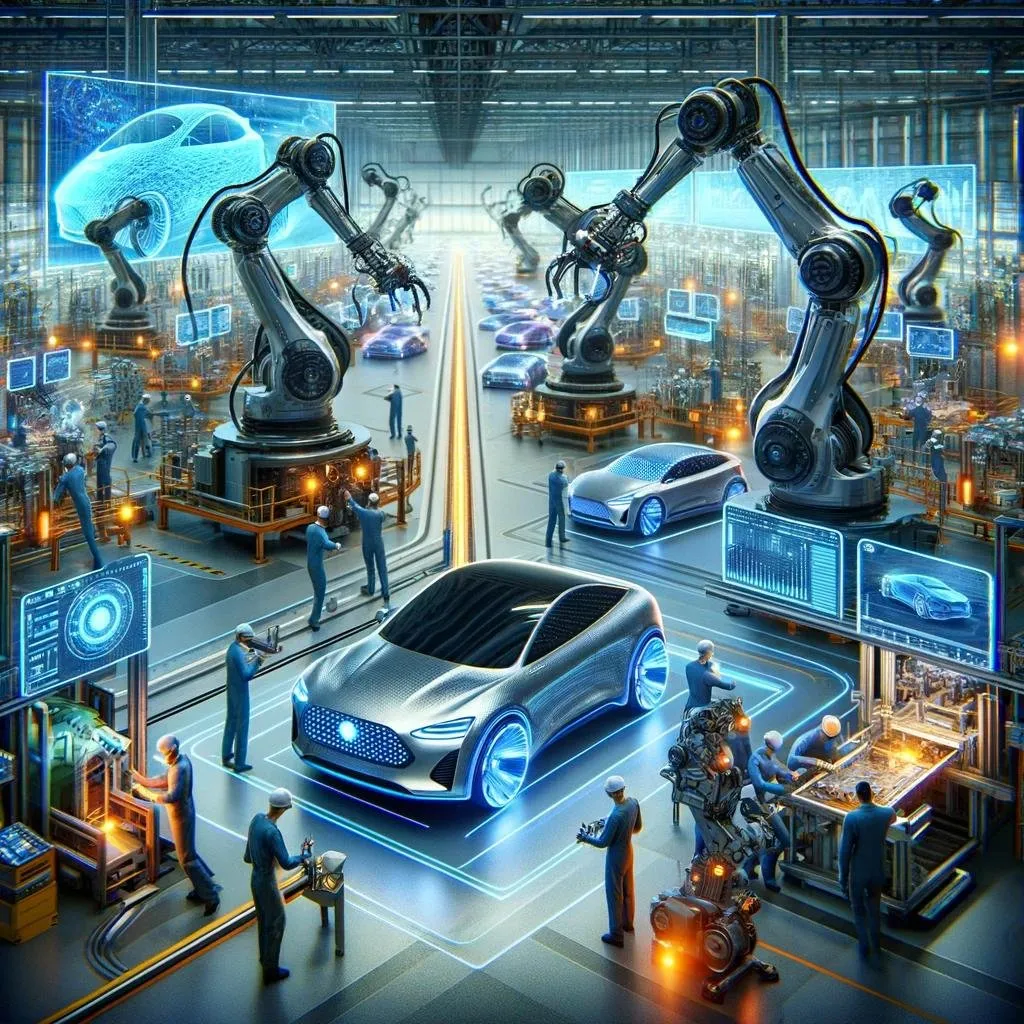

Conclusion: Steering Towards an AI-Driven Future
The journey of AI in automotive manufacturing is a blend of innovation, challenges, and boundless potential. With an annual growth rate of 37.3% between 2023 and 2030, AI's role in this industry is set to expand significantly. Balancing technological advancement with ethical and security considerations is key to harnessing AI's full potential. As we witness this transformative era, it's clear that AI isn't just driving cars; it's driving the future of automotive manufacturing.

Sources:
Artificial Intelligence Is Changing the Way Cars Are Made
24 Top AI Statistics And Trends In 2023
Auto industry speeds ahead on innovative technologies

Blog Banner created by me, using my Canva Pro account
INLEO Animated Divider is courtesy of @ doze
All other images were **Dall-E 3 **generated using my prompts
Posted Using InLeo Alpha